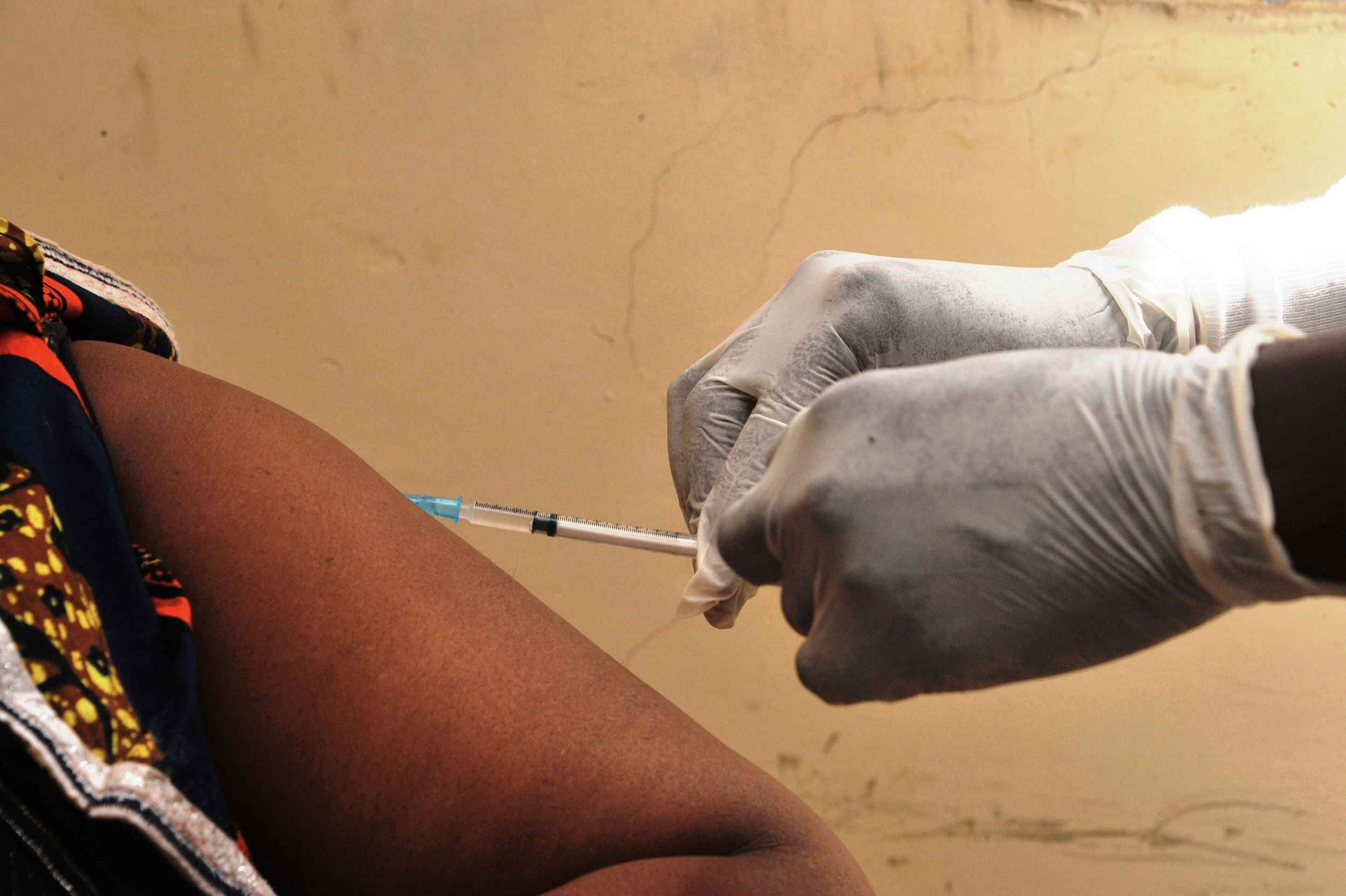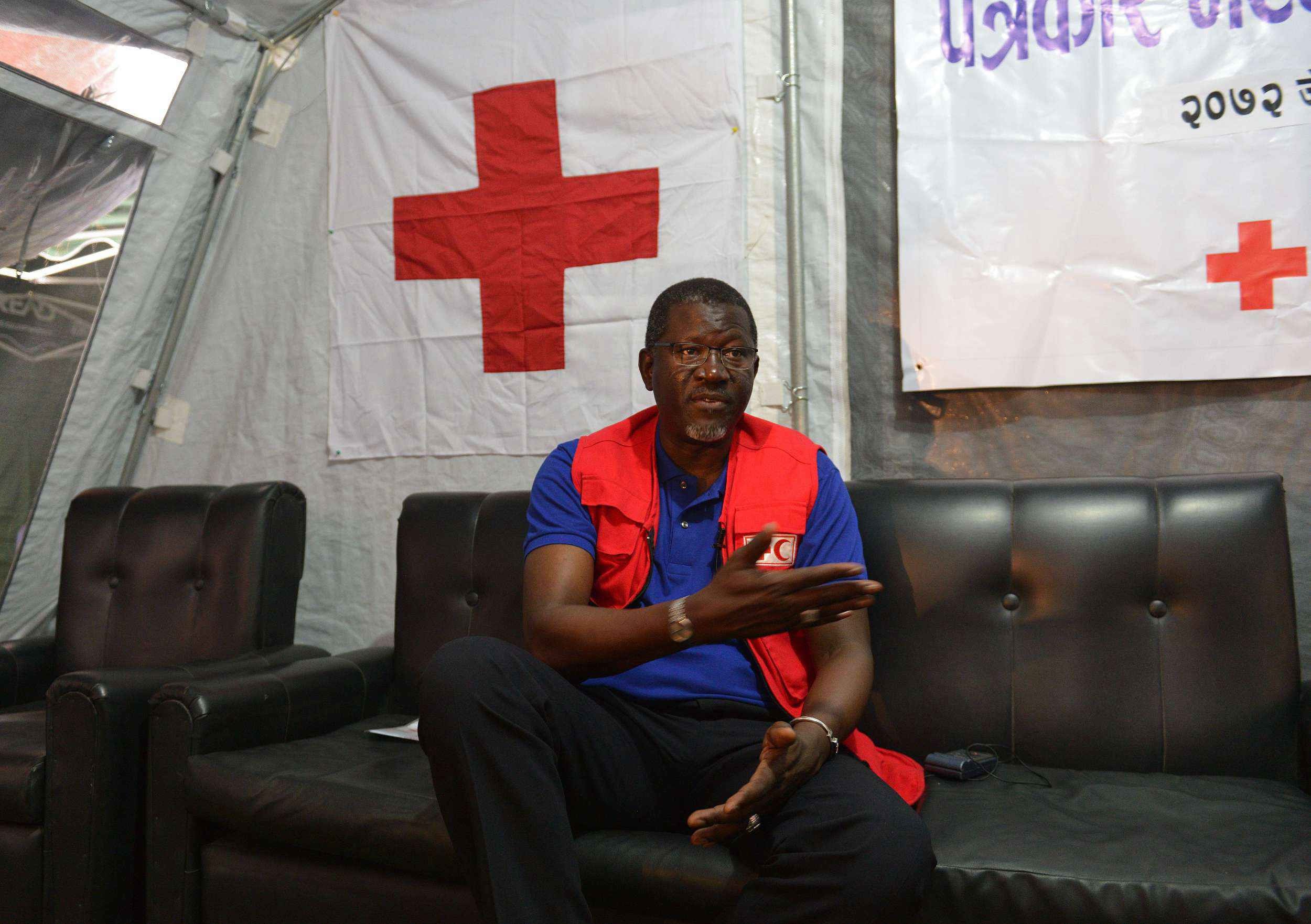The rapid reaction by the Democratic Republic of Congo to the recent cases of Ebola showed lessons were learned from earlier outbreaks, a top global health official said on Friday, stressing the need to factor health into disaster risk plans.
Two cases of the virus have been confirmed by the World Health Organization in Congo's remote northeastern Bas-Uele province since early May.
Four people have died so far among the 43 suspected and confirmed cases.

This file photo taken on March 10, 2015 shows a woman getting vaccinated at a health center in Conakry during the first clinical trials of the VSV-EBOV vaccine against the Ebola virus. /VCG Photo
With the improved activation of early alert systems and emergency teams in Congo, "hopefully we will not get into a full-blown outbreak like it was a few years before," the secretary general of the International Red Cross and Red Cross Societies told the Thomson Reuters Foundation in an interview.
"This is very different from what we experienced in Liberia, Senegal and Guinea, where the outbreak was happening for the first time ever," said Elhadj As Sy.
"People couldn't recognize it in time," he said.
Ebola in West Africa killed more than 11,300 between 2014 and 2016.

In this photograph taken on May 16, 2015, Secretary General of the International Federation of Red Cross and Red Crescent Societies Elhadj As Sy speaks during an interview with AFP in Kathmandu./VCG Photo
Sy said the remote location in Congo – about 1,400 kilometers (870 miles) from the capital, Kinshasa – meant the highly contagious hemorrhagic fever was "quasi-quarantining itself."
"One is this time building on the past experience in the Democratic Republic of Congo in the last outbreak as well as lessons learned in the last outbreak," he said.
This latest Ebola outbreak is Congo's eighth, the most of any country. The fever was first detected in its dense tropical forests in 1976 and named after its river Ebola.
Speaking on the sidelines of a United Nations conference on disasters, Sy said vulnerable people in areas plagued by conflict and natural disasters such as Somalia and South Sudan need measures to reduce exposure to risk and increase their resilience.

This file photo taken on March 09, 2003 shows an agent of the Congolese Red Cross disinfecting a room of the Kelle hospital, northwestern Congo, where an Ebola fever infected patient lies. /VCG Photo
The Global Platform for Disaster Risk Reduction meeting in Cancun, which ended on Friday, was the first major meeting since a framework was hammered out in Sendai, Japan two years ago, setting ambitious targets for governments to cut deaths and economic losses from disasters by 2030.
The targets include limiting damage to infrastructure and disruption to basic services and widening access to early warning systems and public disaster risk information.
"There is a growing agreement that natural hazards do not equate to natural disasters," Sy said. "The fact that it becomes a disaster will pretty much depend on our level of preparedness and our level of response."
(Source: Reuters)
Related stories:
Three die in new Ebola outbreak in DR Congo









